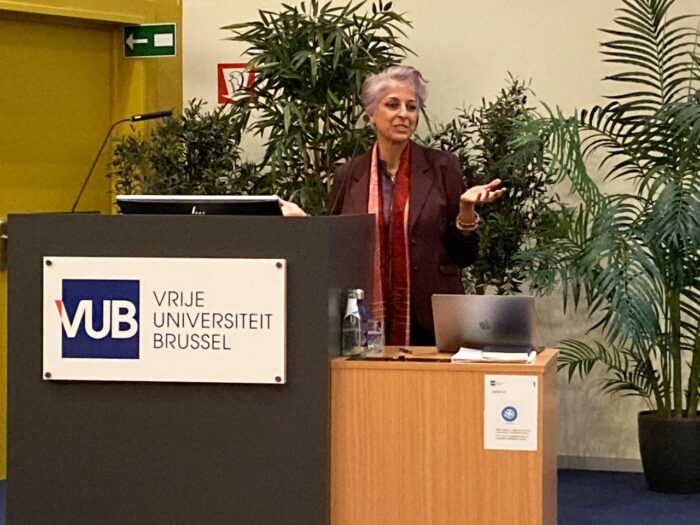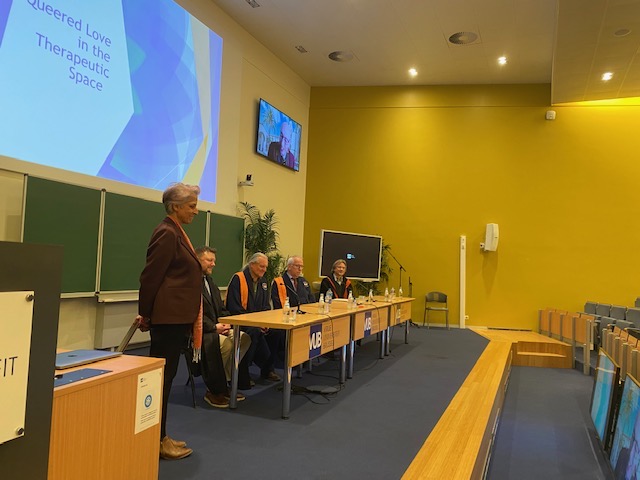Meera Dhebar
Queered Love in the Therapeutic Space
2022/2023
Abstract
This dissertation analyzed how queer of colour cultural knowledge can be used to examine traditional approaches to mental health within counselling psychology and social work. Western-based colonial discourse has historically not been inclusive of the voices of queer people of colour. I argue that these voices, their viewpoints and perspectives are critically important to the mental health field in general.
The research study sought to first understand how queer of colour cultural knowledge can inform the counselling education of racialized queer student therapists. It was also interested in how racialized queer therapists use their cultural knowledge to inform their current practice with queer clients. Eight queer of colour therapists participated, discussing their experiences of counselling education, their counselling practice approaches, their ethics, and their queer client relationships.
Data was collected using a series of interviews and discussions formulated through outsider witness teams guided by a narrative therapy approach. The interview materials and discussions were analyzed using Interpretative Phenomenological Analysis (IPA). IPA made it possible to engage in a reflective, meaning-making stance with the data, a perspective crucial to centering the experiences of this group whose voices have been generally erased in mental health practice and scholarship.
Participants reported that much of the counselling knowledge and skill development in their counselling education programs was often inadequate and even undermined their ability to be appropriately prepared to provide effective mental health services to their community. Collectively, they described how counselling training presented in the form of multicultural counselling competency, anti-oppressive practice, and professional codes of ethics fell far short of their practice needs. On many occasions, participants indicated that
their counselling training marginalized their lived experiences and silenced their personal and collective voice.
Using a constructionist and postmodern frame, this research study identified an important composition of cultural knowledge embedded in queer epistemology and queer of colour critiques. When participants discussed the insights they identified when utilizing queer of colour cultural knowledge, they described being able to bring more understanding and connection to their counselling practice. This research shows how utilizing queer of colour cultural knowledge can allow voices to emerge that have been traditionally silenced and therefore centers voices that have been historically erased within the counselling field.
The dissertation concludes by arguing that queer of colour cultural knowledge can, not only support clients who are racialized and queer, but support and enhance the practice of therapy in general.


